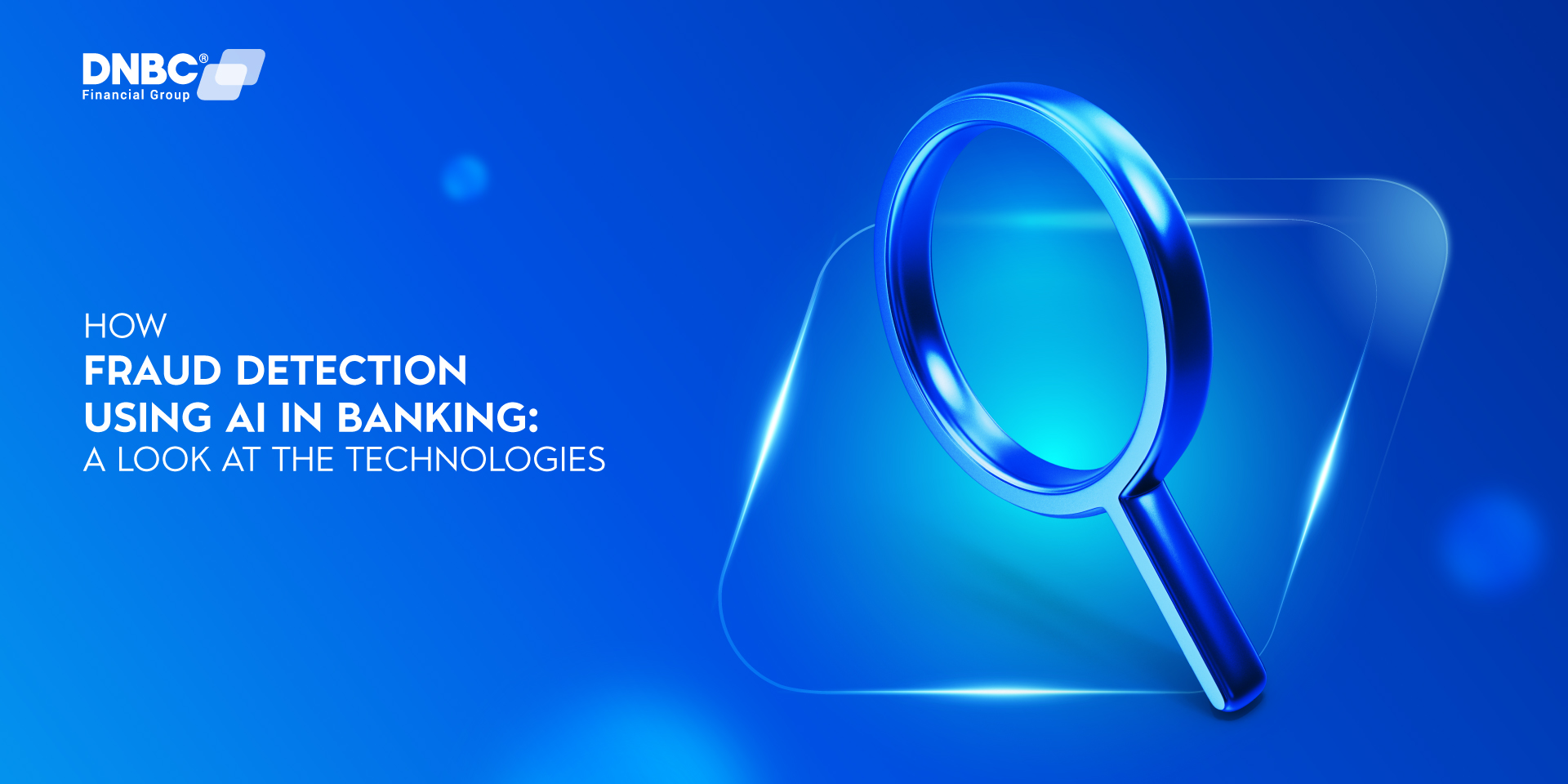- Home
- Blog
- Financial News & Tech
- Why Cybersecurity in Financial Services Matters
Why Cybersecurity in Financial Services Matters
Financial News & Tech
16 December 2024
DNBC Team
This article is a part of DNBCGroup Blog Center
Contact DNBCGroup for the technology news, tips, trends, and updates.
Introduction
In today’s digital age, cybersecurity in finance has become more critical than ever. With financial institutions handling vast amounts of sensitive data and money transfers, they are prime targets for cyberattacks. In recent years, there has been a surge in data breaches, fraud, and ransomware attacks, threatening not just the integrity of financial systems but also the trust of customers. To counter these growing threats, innovative solutions, such as artificial intelligence (AI), are stepping in to revolutionize how the financial sector approaches cybersecurity. In this blog, we’ll explore what cybersecurity is, its importance in the financial sector, and how AI can improve cybersecurity in financial institutions to safeguard businesses and customers alike.
What Is Cybersecurity?
Cybersecurity refers to protecting systems, networks, and data from cyber threats such as hacking, data breaches, and malware attacks. In the context of cybersecurity in finance, it involves implementing measures to secure sensitive financial information, prevent fraud, and ensure the smooth functioning of financial operations. Financial institutions, such as banks and payment service providers, face constant risks due to the high value of the data they manage.
From encrypting customer data to monitoring for unauthorized access, cybersecurity in financial institutions is critical for mitigating threats. Without strong cybersecurity frameworks, financial institutions risk exposure to significant financial loss, reputational damage, and regulatory penalties. As the digital landscape evolves, robust cybersecurity strategies have become indispensable for protecting businesses and their customers.
The Importance of Cybersecurity in Finance
The financial sector is one of the most targeted industries for cyberattacks due to the sensitive nature of the data it handles. Ensuring robust cybersecurity in finance is essential for protecting confidential customer information, safeguarding transactions, and maintaining trust. A single data breach can result in severe financial losses, reputational harm, and even legal consequences for financial institutions.
Moreover, regulations like GDPR and PCI DSS mandate that financial institutions maintain strict security protocols. Failure to comply can lead to hefty fines and loss of customer confidence. Effective cybersecurity in financial institutions not only helps mitigate risks but also plays a key role in building trust and loyalty among customers.
In today’s digital era, where cyber threats are becoming increasingly sophisticated, the importance of cybersecurity extends beyond compliance. It is a fundamental necessity for ensuring operational stability and preventing disruptions. By adopting advanced technologies like AI, financial institutions can stay ahead of emerging threats, further emphasizing how AI can improve cybersecurity in the financial sector to create a more secure future for all stakeholders.

Challenges Facing Cybersecurity in Financial Institutions
Despite technological advancements, maintaining effective cybersecurity in financial institutions remains a significant challenge. One of the biggest hurdles is the increasing sophistication of cyberattacks. Hackers constantly evolve their tactics, using advanced tools like AI and machine learning to bypass traditional security measures. Financial institutions, with their high-value data, are prime targets for such attacks, making it crucial to stay ahead of these evolving threats.
Another challenge is the integration of emerging technologies. While digital transformation has enhanced financial services, it has also introduced new vulnerabilities. For example, while convenient, cloud computing and mobile banking can expose institutions to potential security breaches if not properly managed. Additionally, many organizations face a shortage of skilled cybersecurity professionals, limiting their ability to implement comprehensive defenses.
Regulatory compliance adds another layer of complexity. Financial institutions must navigate stringent requirements while simultaneously addressing the dynamic nature of cyber threats. This balancing act can be overwhelming, especially for smaller organizations with limited resources.
These challenges highlight the need for innovative solutions, such as AI-driven tools, to enhance security measures. By leveraging AI, institutions can proactively detect and mitigate threats, showcasing how AI can improve cybersecurity in the financial sector and address these pressing challenges.
How Can AI Improve Cybersecurity in the Financial Sector?
Artificial intelligence (AI) is revolutionizing cybersecurity in finance, offering advanced tools to detect, prevent, and respond to cyber threats. One of the primary benefits of AI is its ability to identify patterns and anomalies in real time, enabling financial institutions to detect potential breaches before they escalate. This proactive approach is crucial in safeguarding sensitive financial data and maintaining operational stability.
AI can also automate incident response, significantly reducing the time it takes to mitigate cyberattacks. For example, AI-powered systems can instantly isolate compromised devices or accounts, preventing further damage. Additionally, AI enhances fraud detection by analyzing vast amounts of transaction data flagging suspicious activities that might go unnoticed by traditional systems.
Another area where AI excels is improving data encryption and security protocols. By continuously adapting to new threats, AI ensures that financial institutions stay ahead of hackers attempting to exploit vulnerabilities. Furthermore, AI can help address the challenge of resource limitations by reducing the dependency on manual processes and enhancing overall efficiency.
Financial institutions are already leveraging AI-driven tools to bolster their defenses, demonstrating how AI can improve cybersecurity in the financial sector and make it more resilient against emerging threats. As cyberattacks grow in complexity, adopting AI is no longer optional but a necessity for ensuring robust cybersecurity in financial institutions.

DNBC’s Commitment to Security: Adhering to GDPR and PCI DSS Standards
At DNBC, ensuring the highest level of security for our customers is a top priority. We adhere to globally recognized compliance frameworks to safeguard sensitive financial information and maintain trust, including the General Data Protection Regulation (GDPR) and the Payment Card Industry Data Security Standard (PCI DSS).
GDPR Compliance: DNBC strictly follows GDPR guidelines to protect customer data. This includes ensuring transparency in collecting, processing, and storing personal information. By implementing robust encryption, secure access controls, and regular audits, we guarantee that customer data remains confidential and protected from unauthorized access. GDPR compliance not only strengthens our commitment to data security but also assures customers that their privacy is always respected.PCI DSS Compliance: As a financial service provider, DNBC complies with PCI DSS to ensure the secure handling of payment card information. We employ advanced security measures such as tokenization, multi-factor authentication, and real-time threat monitoring to prevent data breaches and unauthorized transactions. These measures are designed to protect cardholder data and minimize the risk of fraud.By integrating GDPR and PCI DSS into our operations, DNBC demonstrates its dedication to delivering secure and reliable financial services. These standards form the foundation of our approach to cybersecurity in finance, allowing us to protect our customers and meet the evolving challenges of the digital age.

Conclusion
In an era where cyber threats are becoming increasingly sophisticated, prioritizing cybersecurity in finance is no longer optional—it’s a critical necessity. Financial institutions are entrusted with safeguarding sensitive data and ensuring secure transactions, making them prime targets for cyberattacks. By understanding the challenges, embracing innovative solutions like artificial intelligence, and implementing best practices, the financial sector can stay ahead of emerging threats.
The integration of AI is a game-changer, demonstrating how AI can improve cybersecurity in the financial sector by enabling real-time threat detection, automating responses, and enhancing fraud prevention. These advancements mitigate risks and help build trust and confidence among customers.
As technology evolves, financial institutions must remain proactive in adopting forward-thinking strategies, such as Zero Trust Architecture and quantum-resistant encryption. Strengthening cybersecurity in financial institutions will require a combination of advanced tools, robust policies, and collaborative efforts to create a secure financial ecosystem.
By embracing the right technologies and practices, the financial sector can protect its assets, comply with regulations, and uphold its commitment to providing safe and reliable services in today’s digital world.
Your Trusted Partner
In your Digital
Journey
Free 1 - on -1 support
Free account opening fees
No hidden fees
Note: The content in this article is for general informative purposes only. You should conduct your own research or ask for specialist advice before making any financial decisions. All information in this article is current as of the date of publication, and DNBC Financial Group reserves the right to modify, add, or remove any information. We don’t provide any express or implied representations, warranties, or guarantees regarding the accuracy, completeness, or currency of the content within this publication.
Related posts
![]()
Wire Transfer Receipt Guide: Proof & Tracking Tips
25 April 2025

Smarter AI Fraud Detection Insurance Tools
24 March 2025

How Fraud Detection using AI in Banking: A Look at the Technologies
20 March 2025

AI Fraud Detection vs. Traditional Methods: What’s Better?
19 March 2025

Top 5 Banking Financial Transformation Trends to Watch in 2025
14 March 2025